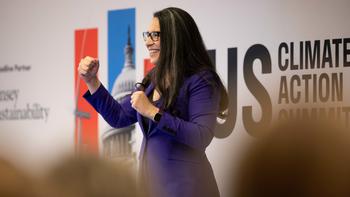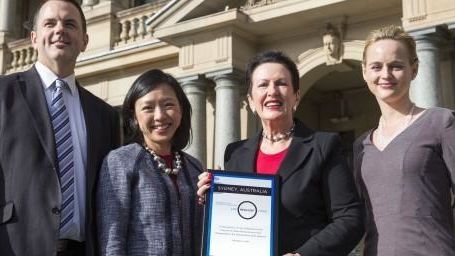The Hon Dr David Gillespie MP
Minister for Regional Health
Minister Assisting the Minister for Trade and Investment
Deputy Leader of the House
An innovative health training program will be established in Murray Bridge, Berri and other sites in the Riverland Mallee Coorong (RMC) region, improving access to health services and providing invaluable training opportunities for health students.
Member for Barker, Tony Pasin today announced Flinders University will receive $1.94 million from the Federal Coalition Government to establish a new model of person-centred, multidisciplinary health training placements for the RMC region.
Mr Pasin said that Flinders will work closely with RMC Local Health Network and Aboriginal Medical Services to provide opportunities for about 18 students each year to take part in 4-6 week training placements, which equates to around 360 weeks of placements in local communities over the next two years.
“Additionally, Flinders will employ several local academic and administrative staff to work in the region, attracting and retaining the health workforce” Mr Pasin said.
Federal Regional Health Minister, Dr David Gillespie joined Mr Pasin today at Flinders University’s Murray Bridge campus to announce the investment through the Coalition Government’s Rural Health Multidisciplinary Training (RHMT) program.
Mr Pasin said the project will extend the university’s existing rural health training activities into new, more remote settings, as well as a greater range of health professions.
Dr Gillespie, a former regional doctor, said the project was part of a $14.25 million investment to establish multidisciplinary health training demonstration sites in more remote areas of Australia.
“This will give students in many health disciplines the experience, skills and positive learning experiences to encourage them to return to these areas after they graduate,” Dr Gillespie said.
“Additionally, it will give local students new career pathways in health while boosting access to local health services for patients, now and into the future.”
Mr Pasin said Flinders will hold recruitment activities in schools to create a career pathway for young health professionals to become educators, supervisors, and mentors to local students.
Flinders has co-designed this project,working with local health services to create more multidisciplinary placements for students from Flinders, University of South Australia, University of Adelaide, and TAFE SA.
To ensure that the project is appropriate for Aboriginal and Torres Strait Islander people, Flinders will second a cultural expert from the Aboriginal Health Unit of RMC Local Health Network.
“Flinders will extend collaborations with the local Aboriginal Medical Service, Moorundi, and multiple community and non-government health services providers in the region to expand existing training programs,” Mr Pasin said.
Dr Gillespie said the training hubs would build on Flinders’ existing rural health training staff and infrastructure, providing multiple benefits for local people.
Flinders will give priority to students from Indigenous and rural backgrounds.
“Located in an area with one of the largest Indigenous populations in SA, the initiative has the potential to transform health outcomes for Indigenous communities,” Mr Pasin said.
“Bringing staff and students to the region will also make an economic contribution to the local community.”
Flinders will purchase two additional houses for student accommodation, one in Berri and one in Murray Bridge, which will actively encourage students to stay in the region rather than commuting from Adelaide, adding to their overall rural experience.






